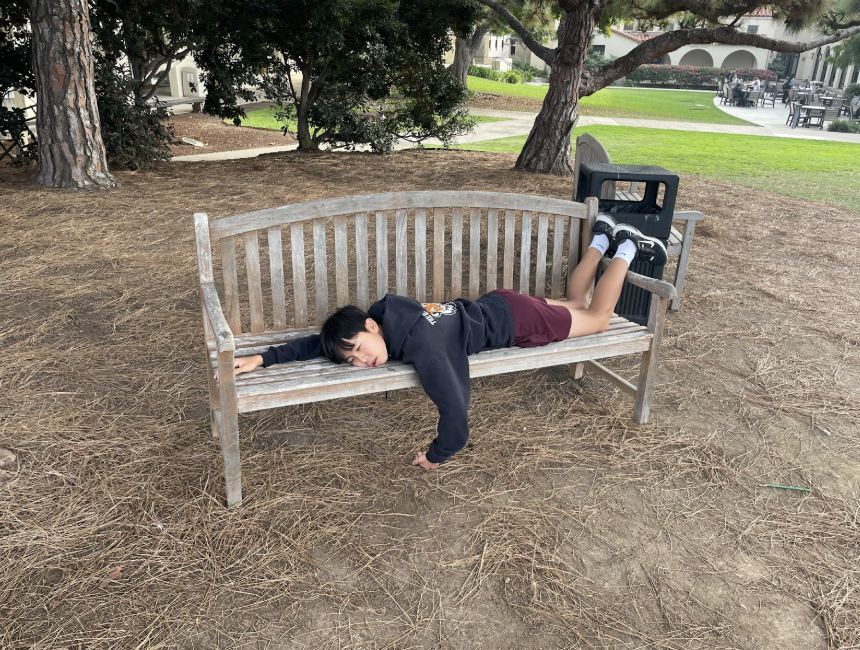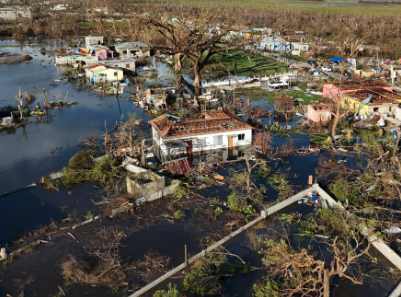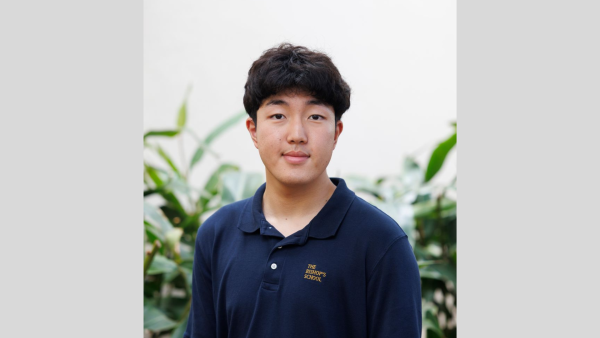It’s 9 P.M.. You just wrapped up your math homework and you’re starting to feel a little drowsy. Prioritizing your health, you settle on finishing your Chemistry tomorrow and head to bed. After all, you need your beauty sleep.
Does that situation sound familiar? I bet it doesn’t.
Because in today’s hustle-driven world, sleep has gone from being essential to just another flexible component of student life. Busy nights and the belief that people can “catch up” on lost sleep later have redefined how students approach rest.
A study conducted in 2015 by professors from Columbia, Texas, and Michigan universities and published by the National Institute of Health (NIH), reports that the amount of sleep students get has been on a steady decline over the past few years. In 1991-1995, an average of around 34% of students reported getting adequate sleep, in 2011-2012 an estimated average of 30% of students got enough sleep, however in 2024 the National Sleep Foundation found the number to be less than 20%. Furthermore, a separate NIH published study, conducted by professors from the University of Porto state that “there is a greater number of those [studies] which support that poor sleep quality predicts depression or depressive symptoms.” They added that “the other longitudinal studies pointed to a greater risk of depression, or greater presence of depressive symptoms when sleep problems were present.”
Nelson Qin (‘27) stated that “for me, [the] main causes of staying up late are school and extracurriculars.” The University of California Los Angeles (UCLA) also believes that the education system itself is the primary cause for sleep loss. In an article written by UCLA’s Center for the Developing Adolescent, they claim that “many middle and high schools start earlier than elementary schools, which translates into less sleep for students.” The Center additionally views “homework and extracurricular activities” to be just as detrimental to student sleep as early start times. The Center conjectured that students are being asked to “trade incremental increases in academic performance for declines in their own mental health,” although more research is needed to substantiate this claim.
Ironically, sacrificing mental health and staying up late to study reflects worse academic performance. The University of Washington conducted a study in 2018 testing this hypothesis. In it, they took the academic performance of two groups of sophomores enrolled in a Biology class at both Roosevelt High School and Franklin High School in Washington state. Group A would consist of students from both schools that had classes starting at 7:50 a.m., while Group B would consist of students from both schools that had classes starting at 8:50 a.m., allowing for an extra hour of sleep. The study found that students who were in Group B, on average, slept for 34 more minutes, and had a 4.5% higher final grade than those in Group A.
A University of Washington Professor of Biology, Horacio de Iglesia, who worked on the study, theorized that the reason 34 minutes of sleep was able to have such a “huge impact” was because of circadian rhythms.
Studies define circadian rhythms as an internal clock humans possess. It intuitively tells us when to eat, sleep, relax, and lock in. In teenagers, however, the circadian rhythm is stretched and the natural sensitivity to morning light is decreased. These alterations often cause teenagers to sleep late and wake up late when compared to younger children and adults.
Professor de Iglesia says that “to ask a teen to be up and alert at 7:30 a.m. is like asking an adult to be active and alert at 5:30 a.m.” The circadian rhythm for teens is estimated to be about one to two hours off of an adult rhythm. By providing an extra half hour or so of sleep, the circadian rhythm’s effects can be greatly offset.
In spite of clear studies, such as the ones listed above, that link lack of sleep to poor academic performance and a higher risk of mental health issues, the majority of high school students nationwide still don’t get enough sleep. In a countrywide study done by the Center for Disease Control, 72.7% of teens reported not getting enough sleep.
One of the many reasons students might still not sleep is because of the notion that sleep debt — a term coined by the NIH describing “the total amount of sleep lost” — can be repaid later. This means that students who sleep a small amount over the weekdays believe they can still achieve the proper amount of rest by sleeping more on the weekends to make up for the lost hours.
The issue of sleep debt repayment is a divisive topic; some researchers suggest that it might have long term benefits, while others argue the opposite. Both sides, however, seem to agree that in the short term it does not resolve a lack of sleep.
According to the a study published by the NIH, repaying sleep debt takes longer than accumulating it. The study found it takes “up to four days to recover from one hour of lost sleep.” The weekend is not enough to recover from sleep debt, even one hour of it. Even worse, the average amount of sleep a high school student gets is 7-7.25 hours , according to the Nationwide Children’s Hospital.In an article written by the American Academy of Sleep Medicine, they cite a to be eight to ten hours. This creates a sleep debt of one to three hours on average, which would take up to an extra 12 hours of sleep to redeem, which is typically an impossible amount.
However, at an academically-competitive school such as Bishop’s, the amount of sleep that some students get is consistently lower than seven hours. “On a day to day average, I get around six hours of sleep, and I usually get around four if I have a test the next day,” Ella Xing (’26) said. Similarly, Garrett Guess (’27) explained, “I sleep at 1:00 a.m. and get up at 6:30 a.m.” Both students sleep substantially below the required amount yet neither student claims it largely affects them. Ella says that, despite a lack of sleep, she feels that she functions normally. Similarly, Garrett claims that it only affects him on a “lowkey” level.
Despite evidence proving that Bishop’s students’ sleep debt levels bring detrimental effects, it seems like the students themselves either don’t notice the effects or are unwilling to acknowledge them. This could be seen as a reflection of culture at Bishop’s and other highly competitive high schools. As Nelson put it, “we, as students, sometimes think that sleep is a waste of time.”
Society admires individuals who persevere through exhaustion and relentlessly push themselves to their limits. Often, students who receive little to no sleep are acclaimed as hard-working and ambitious students that have a vision for their future.
Bishop’s seems to have a similar culture around sleep. Nelson believes that “most students think that they have to sleep less to catch up with others who might be doing better.” Students can often be heard comparing the amount of sleep they got last night, usually trying to undercut each other.
However, this kind of sleep culture can culminate into an endless cycle of sleep deprivation as students continue to try and outperform their peers by getting less sleep. Overall, the relationship between students and sleep will always be complex, but it’s important to remember that sleep is just as essential for us to function as food or water.








